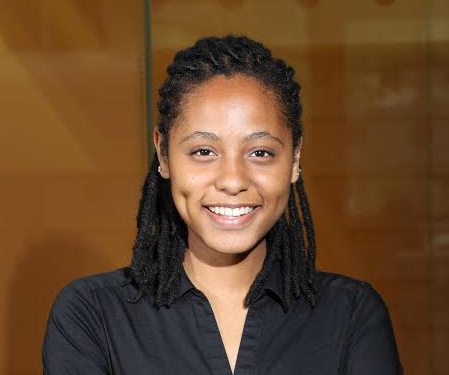Stanford Ocean Acidification VR Experience
Stanford University,

I am a fifth-year PhD student co-advised by James Fogarty and Jennifer Mankoff in Computer Science & Engineering at the University of Washington. I am grateful to be an ARCS Foundation Scholar and a GEM Fellow. My research in
I recieved my Bachelor's degree from the University of Maryland, Baltimore County (UMBC) in May 2021 where I majored in Computer Science and minored in Psychology. At UMBC, I was a McNair Scholar , LSAMP Scholar and a Center for Women in Technology (CWIT) Affiliate.
This project explores how multilingual and multicultural people with disabilities engage in code-switching and masking in the context of AI use; how AI technologies support, facilitate, undermine, and necessitate these practices; the challenges and advantages users encounter in these practices; and users' desires for AI's role in shaping context-sensitive identity expression. In this, we aim to understand how AI might be reimagined and re-designed to center user agency and self-determination around such practices across diverse sociotechnical environments.
As generative AI (GenAI) is integrated into everyday technologies, it offers new accessibility opportunities and risks for disabled people. However, little is known about how disabled people navigate GenAI in their everyday lives, particularly how trust, privacy, and intersectional identities affect these experiences. We present findings from seven cross-disability focus groups (N=20) that explore how disabled people navigate GenAI. Our findings reveal that while GenAI supports autonomy, efficiency, and communication, it also introduces accessibility taxes and ethical dilemmas. Although participants voiced skepticism, many continued using GenAI out of necessity. Finally, we found identity-based benefits and tensions, in which GenAI preserved and validated intersecting identities, but also misrepresented and erased those identities. We frame these negotiations as a constant balancing act between access and risk, urging research to further examine how “access” is conceptualized. We offer implications for creating GenAI tools that are transparent, trustworthy, and responsive to intersectional identities.
Speech-language pathologists (SLPs) are professionals who provide support to children with speech and language difficulties through delivering evaluation, assessment, and interventions. Despite growing research on how Artificial Intelligence (AI) can support SLPs, there is limited research examining how AI can assist SLPs in delivering equitable care to culturally and linguistically diverse (CLD) children with disabilities. Through interviews with 15 SLPs and a two-part survey study with 13 SLPs, we report SLP perceptions of challenges in delivering responsive care to CLD children with disabilities (i.e., insufficient representative materials, inaccurate and inefficient translation, and insufficient support for language variations), areas for AI-based support, evaluations of how available AI performs in addressing these challenges, and bias assessments of AI-generated materials. We discuss implications of the range of care in AI-prompting, tensions and tradeoffs of AI-based support, and honoring diverse representations in AI-generated materials. Finally, we offer considerations for AI-based support in speech-language pathology.
Deceptive design patterns are interface designs that manipulate people into actions to which they would otherwise object. Despite growing research on deceptive design, limited research examines its interplay with accessibility and visual accessibility technology (e.g.,~screen readers, screen magnification, braille displays). We present an interview and subsequent diary study with 16 people who use visual accessibility technology to better understand their experiences with accessibility and deceptive design. We report participant experiences with six deceptive design patterns, including both designs that are intentionally deceptive and designs where participants describe accessibility barriers manifesting as deceptive, together with direct and indirect consequences of deceptive patterns. We discuss intent versus impact in accessibility and deceptive design, how access barriers exacerbate harms of deceptive design, and impacts of deceptive design from a perspective of consequence-based accessibility. We propose that accessibility tools could help address deceptive design patterns by offering higher-level feedback to well-intentioned designers.
Aashaka Desai*,
Kelly Avery Mack, Jesse J Martinez,
Kate Glazko*, JunHyeok Cha*,
Aayushi Dangol,
Jay L. Cunningham, Adinawa Adjagbodjou, Jeffrey Basoah, Jainaba Jawara, Kowe Kadoma,
Christina N. Harrington, Aashaka Desai,
Aashaka Desai, Venkatesh Potluri,
Stanford University,
Cornell University,
* Indicates authors contributed equally to this work and are considered first author.
2024 I moderated a talk with Patty Berne on Disability Justice: Centering Intersectionality and Liberation
2023 Speaker at the Paul G. Allen School of CSE Accessibility Colloquium
2023 Awarded UW CREATE's Race, Disability & Technology Grant
2023 Attended the CRA-WP Grad Cohort Workshop for Inclusion, Diversity, Equity, Accessibility, and Leadership Skills (IDEALS)
2022 Guest speaker at the 2022 LSAMP Conference
2020, 2018 Speaker at the annual LSAMP Summer Bridging Conference
2019 Speaker at BlackcomputeHER Conference